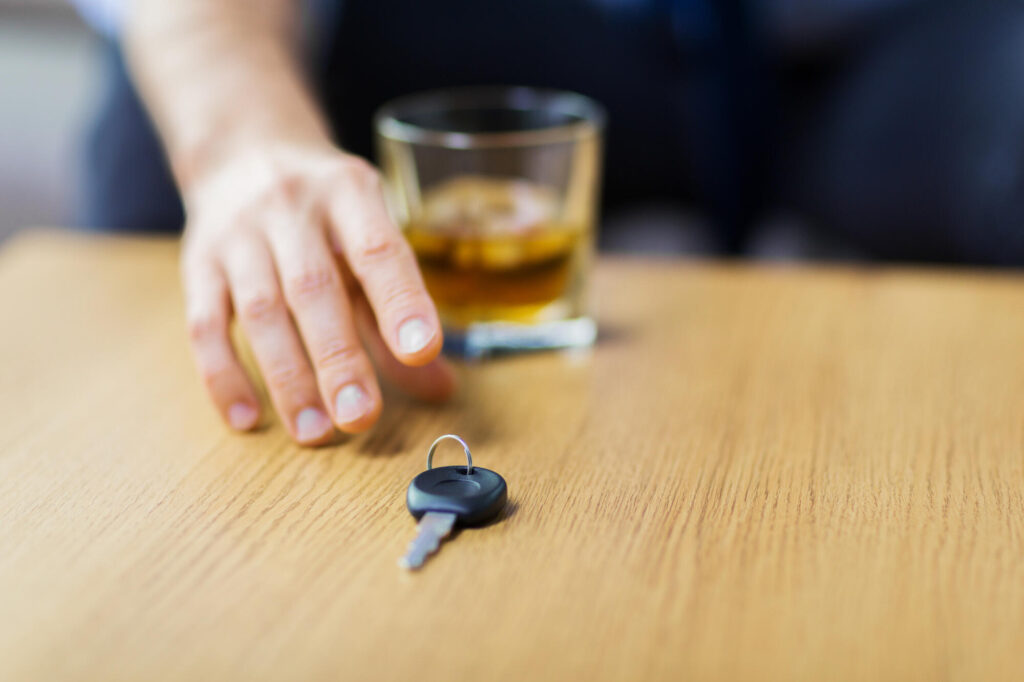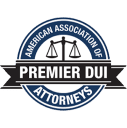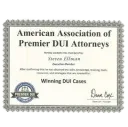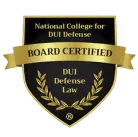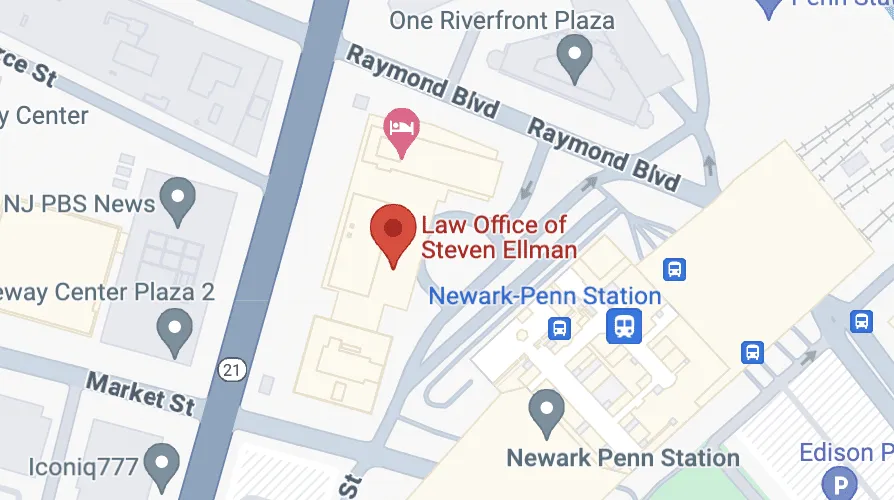What to Do Next if You Are Convicted of a DUI in New Jersey
Learn the steps you need to take if you are convicted of a DUI in New Jersey. Find out how to navigate your case and get support with our timely legal advice.
If you are convicted of a DUI in New Jersey, the consequences can go beyond the courtroom. Your license may be suspended, fines and surcharges could pile up, and your insurance premiums will likely increase.
Don’t panic! With the right legal guidance, you can manage the steps after a DUI conviction. Working with an experienced DUI attorney can help you reduce penalties, understand the requirements for reinstating your license, and avoid future mistakes.
In our guide, we’ll walk you through the practical steps you need to take after a DUI conviction in New Jersey, and how an attorney can help you get back on track.
NJ DUI Penalties: What You’re Up Against
After a DUI conviction in New Jersey, you’ll face penalties that vary based on whether it’s your first, second, or third offense. For a first conviction, you’ll likely deal with a suspended license, fines, and possibly the installation of an ignition interlock device(IID).
A second conviction could lead to harsher penalties. You may have a longer license suspension, increased fines, and mandatory IID installation.
If you are convicted of a DUI and it’s your third offense, the penalties become even more severe, with extended license loss, significant fines, and potential jail time.
Working with a DUI lawyer in New Jersey can help you understand your specific penalties and find ways to reduce their impact. Your attorney may be able to explore alternatives such as treatment programs or help with compliance to ease your burden and help keep you out of jail.
It’s important to understand the full scope of your penalties so you can plan accordingly and move forward.
Understanding the Legal Limits in New Jersey
The penalties you face depend on your blood alcohol concentration (BAC) at the time of arrest and your prior offenses. For drivers 21 and older, the legal limit is 0.08% BAC, while commercial drivers are held to a stricter 0.04% BAC.
Underage drivers fall under New Jersey’s zero-tolerance policy, meaning a BAC of 0.01% or higher can result in charges. This means even the smallest trace of alcohol can lead to serious consequences.
For underage offenders, parents are typically notified, and in many cases, parents are required to be involved in the court process. If convicted, the court may suspend the minor’s driver’s license, and there may be other penalties, including fines or mandatory education programs.
Parents will likely play a key role in ensuring their child meets the legal requirements and may also be involved in discussions around consequences and rehabilitation.
Just Convicted: Now What?
After a DUI conviction in New Jersey, you must follow all court-ordered requirements to avoid further penalties. We’ve mentioned fines and will talk more about the financial aspect of them later. In addition to fines, the court may have additional requirements.
Many drivers convicted of DUI must attend an Intoxicated Driver Resource Center (IDRC) program, where they receive alcohol education and an evaluation. In some cases, New Jersey courts order drivers to complete community service.
If a judge orders you to install an IID, then you’ll need to make arrangements for installation promptly. Getting the device installed quickly means you can get back to driving sooner.
Aside from the details of your court-ordered requirements, it’s important to understand that failing to meet these obligations can lead to additional penalties, extended suspensions, or further legal trouble.
Your lawyerwill explain each requirement and help make sure you complete everything on time. They can also determine if you qualify for an appeal or sentence modification, such as reduced fines or alternative sentencing.
The True Cost of a DUI in New Jersey
A DUI conviction is expensive, and the costs go far beyond the initial fines. Once convicted, you’ll be responsible for multiple financial obligations that can quickly add up. These expenses are not optional — failure to pay on time could result in additional penalties or delays in reinstating your license.
Most drivers worry first about attorney fees, but beyond paying for legal counsel, there are other ways a DUI can impact your wallet, including:
- Court fees
- Mandatory DUI program expenses
- Cost of the ignition interlock device
- Insurance surcharge
- Vehicle towing and impound fees
- Lost wages
- Increase in auto insurance premiums
Many of these fees are self-explanatory, but a few may surprise you. First, the Intoxicated Driver Resource Center (IDRC) program isn’t free for most drivers. If you don’t have the financial means to pay for the program, you may qualify for assistance.
If the court orders you to install an ignition interlock device, you’ll need to cover not only the cost of installation but also monthly maintenance fees.
The New Jersey Motor Vehicle Commission (MVC) also imposes an annual $1,000 insurance surcharge for three years, significantly increasing your financial burden.
Ignition Interlock Devices: What You Need to Know
If your conviction requires an ignition interlock device, you’ll need to install one before driving again. This device prevents your vehicle from starting unless you pass a breath test. The length of time you need the IID depends on your offense and BAC level.
Here’s what you should know about compliance:
- You must have the IID installed by a state-approved provider
- The device requires regular calibration and reporting
- Attempting to bypass the IID can lead to further penalties.
Your attorney can guide you through the IID process and ensure you meet all legal obligations. Staying compliant is essential to regain full driving privileges.
DUI Rehab Programs
We mentioned IDRC programs earlier in this article. The courts often require even first-time DUI offenders to complete an educational program as part of their sentencing.
IDRC programs focus on education, substance use evaluations, and treatment recommendations. If the court orders it, completing your required sessions is necessary for license reinstatement.
Additional rehabilitation programs may be beneficial, even if they aren’t court-ordered. You may want to consider these options:
- Outpatient counseling
- Support groups like AA or SMART Recovery
- Individual therapy
Outpatient counseling provides structured support while allowing participants to continue work and daily responsibilities. Some programs meet multiple times per week, while others offer more flexibility. Support groups like Alcoholics Anonymous (AA) or SMART Recovery connect individuals with peers who have faced similar challenges, offering encouragement and accountability.
Individual therapy can help address personal challenges, improve decision-making, and develop healthier coping strategies.
An attorney can explain the court-ordered requirements and help set you up to complete them properly. They may also be aware of additional resources or programs that could be helpful, but any treatment decisions should be made with a qualified mental health care professional.
How a DUI Conviction Can Affect Your Job
A DUI conviction can create uncertainty about your employment, but it doesn’t automatically mean you’ll lose your job. The impact largely depends on your profession, company policies, and whether driving is a required part of your work. If you hold a commercial driver’s license (CDL) or drive a company vehicle, restrictions or job loss may be a possibility.
For other roles, background checks and workplace policies might come into play, but not every employer will take action based on one DUI.
If you’re concerned about job security, your attorney can guide you on how to handle workplace disclosures and protect your rights. Some legal options, like record expungement after a waiting period, may be available to help reduce long-term consequences. Taking a proactive approach can help you address any challenges and move forward with confidence.
Getting Back on the Road After a DUI Conviction
Losing your license after a DUI conviction can feel overwhelming and embarrassing. Remember, you’ve made a mistake in judgment, but that doesn’t mean you’re a bad person, or that you can’t get things together again.
You can get your driving privileges reinstated by following any court-ordered requirements. In New Jersey, before you can drive again, you must complete your license suspension period, fulfill all IDRC or court-ordered treatment programs, and pay any fines and reinstatement fees.
If you were required to install an ignition interlock device (IID), you must provide proof that it was installed and properly maintained. In New Jersey, the installation of an IID for three months is mandatory for first-time offenders with a BAC between 0.08% and 0.15%.
The DUI court process in NJ involves multiple steps, and missing deadlines or paperwork could slow down your reinstatement. Your attorney is on your side and is your ally in helping you meet all state requirements and submitting the necessary forms to the New Jersey Motor Vehicle Commission (MVC).
We keep saying the word “proactive” but staying proactive and working closely with legal counsel will help you get back on the road as soon as possible.
Reach Out If You Are Convicted of a DUI
Understanding the steps after a DUI conviction can help you stay on track and minimize the long-term effects on your life. If you are convicted of a DUI, the Law Office of Steven Ellman should be your first call!
With over 39 years of experience handling complex DUI cases, you’ll be represented by a respected lawyer who goes above and beyond to secure the best outcomes for each client. Reach out today for a free and confidential consultation and get the strong legal support you need.

